Literary Star Yiyun Li Receives PEN/Malamud Award at AU Ceremony
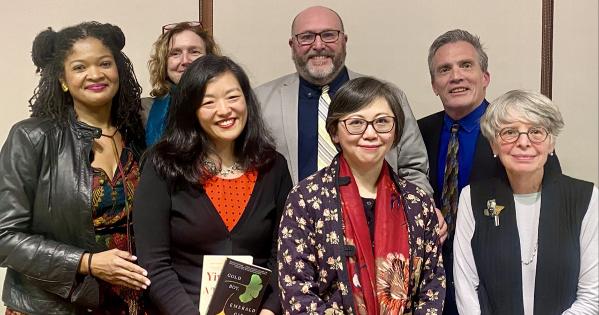
On the evening of December 2, more than 100 readers and writers, literature lovers, and arts supporters packed into AU’s Abramson Family Founders Room. They were there to see Yiyun Li receive one of the nation’s top literary prizes, the PEN/Malamud Award Excellence in the Short Story.
The audience was in for a special experience — Li began the evening with a reading of her powerful short story, The Reason Why, before sitting down for a conversation with AU Professor of Literature Patricia Park. Afterwards, Li was presented with the PEN/Malamud award by Janna Malamud Smith, Bernard Malamud’s daughter.
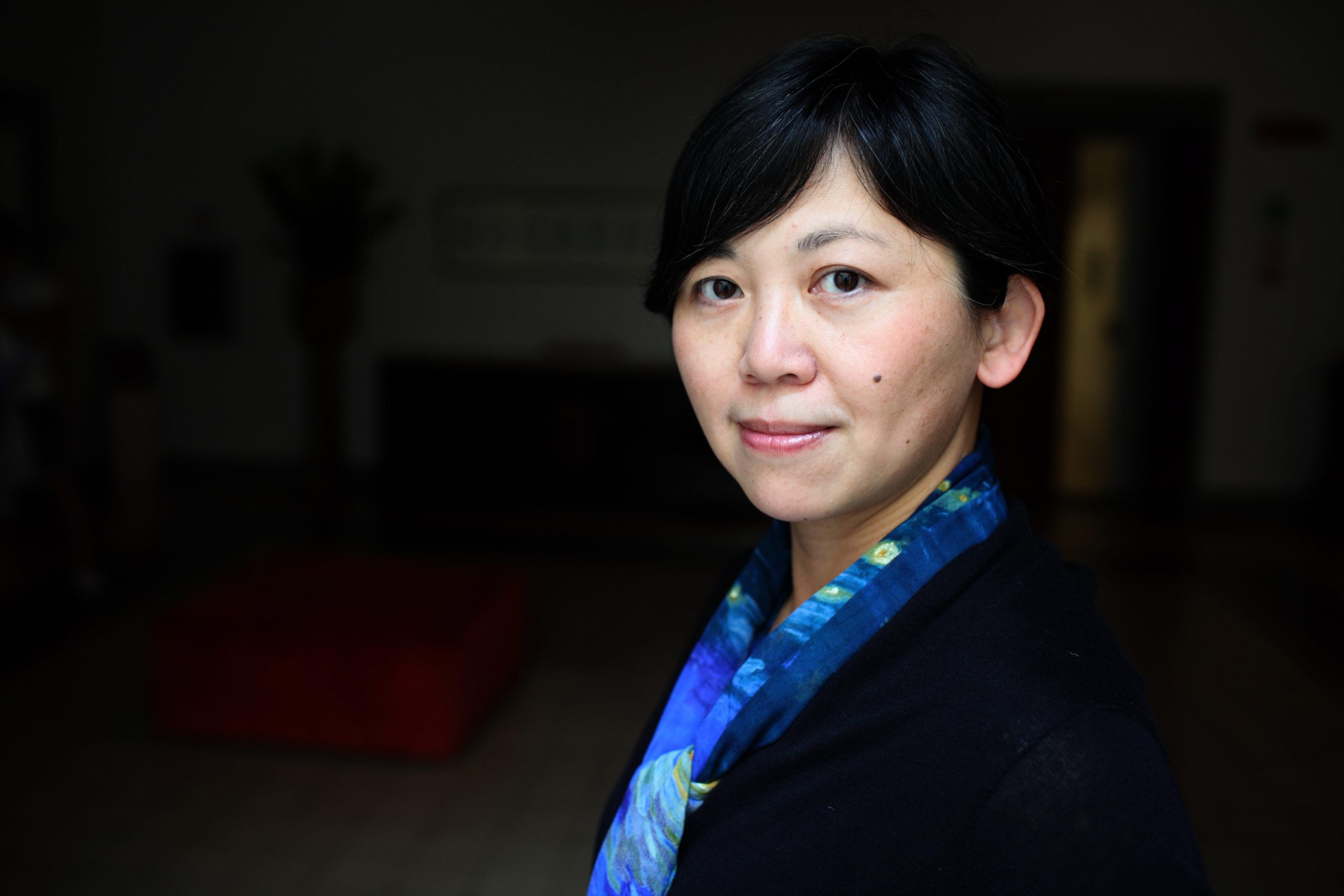
Li has been described by the New York Times’ Megan O’Grady as “one of our finest living authors,” and as “one of our major novelists” by Salman Rushdie. She has published nine books, including her most recent novel, The Book of Goose. She has received many of the most prestigious literary awards and fellowship in the country: Whiting Award, MacArthur Foundation fellowship, Windham-Campbell Prize, Guggenheim Foundation fellowship, PEN/Jean Stein Award, and PEN/Hemingway Award, and more. Her work has appeared in The New Yorker, Best American Short Stories, Best American Essays, and in many other literary outlets.
“All Torque, No Splash”
The PEN/Malamud Award for Excellence in the Short Story is among the nation’s most illustrious literary prizes for the short story. It is presented in honor of the late Bernard Malamud, and it recognizes writers who have demonstrated exceptional achievement in the short story form.
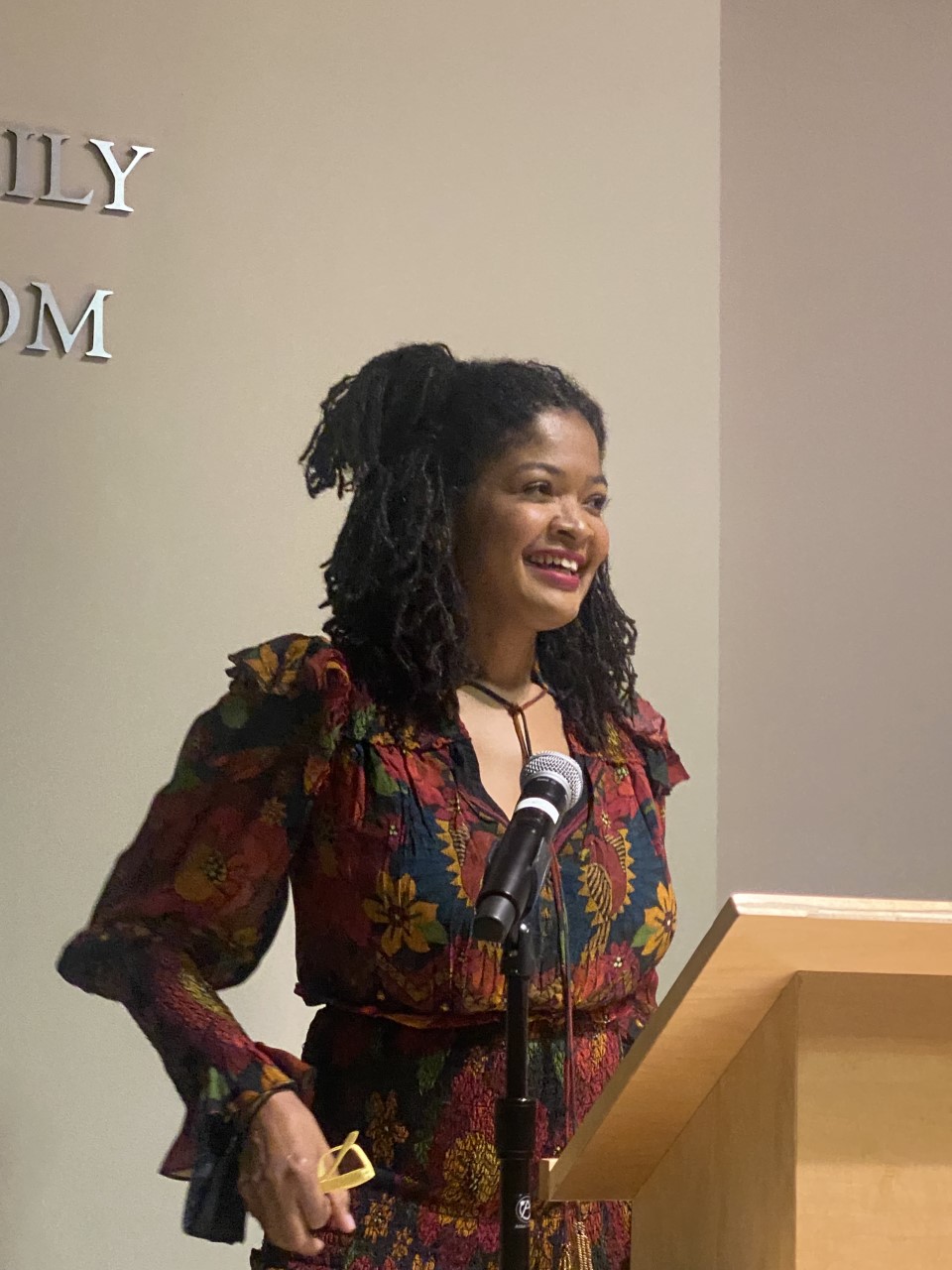
“PEN/Faulkner’s mission is to champion the breadth and power of fiction in America. What a joy it is to have this national literary organization partner with AU’s MFA program in Creative Writing to share our mutual love for arts and letters,” says Dolen Perkins-Valdez, AU associate professor of literature, chair of the Board of the PEN/Faulker Foundation, and the New York Times bestselling author of Wench, Balm, and, most recently, Take My Hand.
In her introductory remarks, AU Associate Professor of Literature Stephanie Grant said that AU’s MFA Creative Writing Program was the perfect host for the short story award. Grant is the program’s director and an award-winning author of fiction and creative nonfiction, most recently Disgust: A Memoir.
“Writing programs generally, and AU’s writing program in particular, revere the short story as the publishing industry so often does not,” Grant said. “As a literary form, the short story is prized for its compression and lyricism, its keen attention to moments of being. It is understood in writerly circles to be more akin to poetry than to the novel. It is seen as the prose equivalent of a brilliantly executed dive from the highest of high diving boards—all torque, no splash. Here at AU, we revere the short story form.”
Movement Through Time and Space
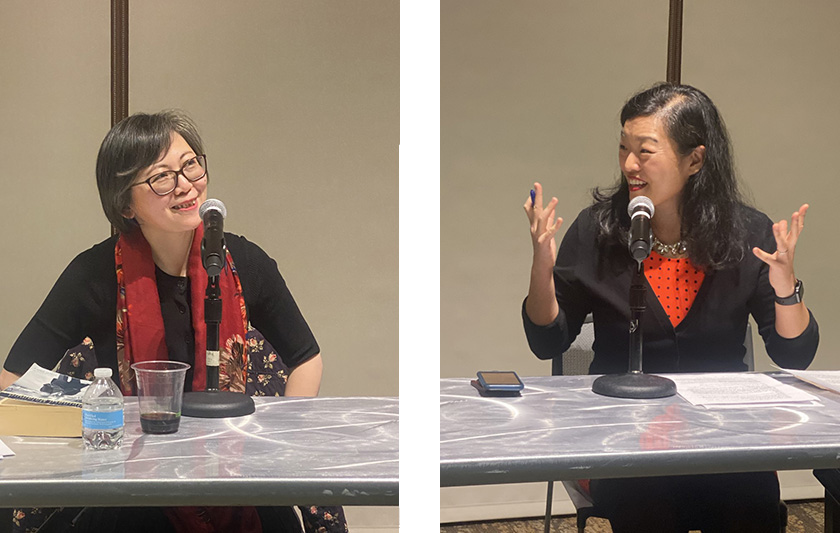
Li sat down with Professor Patricia Park, an award-winning novelist and essayist whose second novel, Imposter Syndrome & Other Confessions of Alejandra Kim, will be published in February. Their conversation flowed through topics from Reading (Li reads for five-to-ten hours a day, and she reads War and Peace every year) to Teaching (she says she is “allergic” to writing terms like “narrative arc”), to Writing Habits (she approaches writing like a scientist doing bench work).
For the readers and writers in the audience, Li shared bits and pieces of her writing philosophy. “I don’t like to plot my stories for the reason that we don’t live by plotting. I always say to my students that you only need plot when you want to murder someone,” Li said, laughing. “But a story needs movement, movement through physical space and through time, and I feel like time is possibly one of the most democratic factors in our life. A minute to me is the same to me as it is to a dictator; he will never get a longer minute than I get.”
Science, Discipline, and the Joy of Reading Slowly
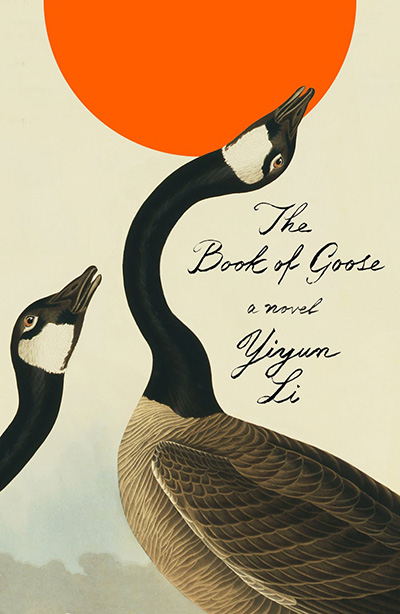
Li did not start out as a writer. She graduated with a science degree from Peking University and an MS in immunology at the University of Iowa. When asked how being a scientist influences her writing, Li talks about discipline and work ethic. “When you’re a scientist, you don’t say, ‘Today I’m not inspired.’ When you’re a scientist, you go to the lab, you do your benchwork. You try, you fail, you try again.”
Li adds that scientists never say that they absolutely know something. “A scientist says I learned a little bit more than yesterday.” Li says she applies this to her characters. She never says she truly knows her characters, but by writing a story, she can finally say she has gotten to know them a bit better.
When asked by an audience member about her reading habits, Li shared that she is a slow and unhurried reader who reads one chapter a day to really get to know the characters—and to get into the writer’s mind. “I often hear people say that a book is so good that they read it in one sitting. I would be really sad if I were a writer, and someone finished my book in one sitting!” she said to audience laughter. “When you think about it, we writers spend years on a book. We would like readers to do the same!”
For More Information
After the audience Q&A, the evening ended with a book signing and reception. Looking back, Grant says, "It was thrilling to be in the presence of a writer at the height of her powers: someone who described herself as still learning, while offering the audience brilliant observations about the work of writing."
For more information about American University’s Creative Writing MFA program, please visit the MFA program website. For more information about the PEN/Faulker Foundation, including a calendar of events, visit the PEN/Faulker website.
